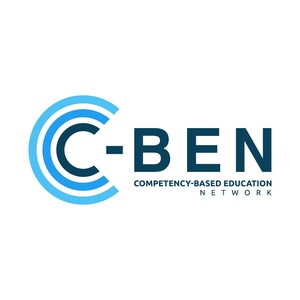CompetencyXChange Agenda Details How Competencies as Currency Helps All Learners Tap into Opportunity
AMELIA ISLAND, Fla., Oct. 19, 2022 /PRNewswire/ -- A new report outlining the potential for scaling competencies as the currency of learning and equitable opportunity was released during Competency-Based Education Network's annual meeting. The CompetencyXChange Agenda outlines action steps to position competencies as the currency of equitable economic opportunity and boost the adoption of high-quality competency-based learning solutions.
Developed by higher education and workforce development leaders, the agenda's vision is to meet the country's talent needs by ensuring all learners have the opportunity to earn credentials that demonstrate mastery of the skills, knowledge, and behaviors required to thrive in their chosen career. The agenda focuses on seven core areas: policy, quality assurance, employers, providers, education technology, research, and community, and uses five different design principles.
"This is a vision of what higher education can- and must- do now," said Charla Long, president of C-BEN. "All learners need a better and more equitable path forward, and competency-based learning can enable a much broader swath of learners to tap into opportunity."
The visionary group behind CompetencyXChange and the agenda includes a team of national leaders who share both deep expertise and an unwavering commitment to equity: ACE's Derrick Anderson, Jobs for the Future's Michael Collins, Diana Natalicio Institute for Hispanic Student Success at the University of Texas at El Paso's Jacob Fraire, Rhode Island's Commissioner on Postsecondary Education Shannon Gilkey, Southern New Hampshire University's Paul LeBlanc, the Alabama Governor's Office Nick Moore, WorkingNation's Jane Oates, U.S. Chamber of Commerce's Cheryl Oldham, RAND Corporation's Rhianna Rogers, Excelencia in Education's Deborah Santiago, and Complete College America's Yolanda Watson Spiva.
More than 39 million Americans have started a college education but have never finished a degree or other credential. Many of them have developed knowledge, skills, and career-relevant behaviors on the job, but they don't have a good way of translating those into a credential that would help them advance in their career.
But, colleges and universities across the country have started to embrace competency-based education (CBE)- learning that focuses on what learners know and can do, rather than the time spent in class. Currently about 600 two- and four-year institutions offer more than 1,000 CBE-based programs. Recent research by AIR shows that 82 percent of institutions expect CBE programs to grow over the next five years.
"As C-BEN was listening to the community over the last year, we heard over and over again that new entrants to competency-based learning, along with a renewed interest in CBE, could benefit from the development of a common vision and agenda for how to scale," said Amber Garrison Duncan, executive vice president at C-BEN.
The CompetencyXChange Agenda calls upon colleges and other postsecondary providers, businesses, and nonprofits committed to championing the adoption and scaling of competency-based solutions to join the movement.
To read the full agenda, please visit here.
About C-BEN: C-BEN is a network of institutions, employers, and experts who believe competencies can unlock the future of learning — making postsecondary education and training more flexible, responsive, and valuable. The organization supports stakeholders across the spectrum of competency-based learning, from institutions and employers who want to embed competencies into their existing programs to those looking to design full competency-based degree programs from the ground up. Across all work, the aim is to make education and training more flexible, responsive, and valuable.
SOURCE C-BEN

WANT YOUR COMPANY'S NEWS FEATURED ON PRNEWSWIRE.COM?
Newsrooms &
Influencers
Digital Media
Outlets
Journalists
Opted In




Share this article